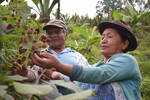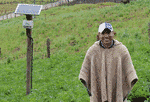In the last two decades, Brazil has reached a level a development by countless successful public policies on FNS, eradication of hunger, the human right to adequate food, rural development and strengthening of family farming, which has made the country a reference.
This was the cornerstone in which the Brazil-FAO International Cooperation Programme was built since 2008 to this date, with the aim of sharing experiences and knowledge from Brazil to other countries of the region.[See more]
Projects of the Program
Objective: Contribute to improving the cotton sector in developing countries; focused on the identification, implementation, monitoring and evaluation of the activities and sub-projects of South-South Cooperation, to be carried out in member or associated countries of Mercosur, subject to mutual agreement between the Brazilian government and the Brazilian Cotton Institute.
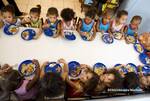
Objective: Contribute to the development of the regional school feeding agenda in Latin America and the Caribbean through the Sustainable School Feeding Network (RAES), aiming to support the development of national school feeding policies.
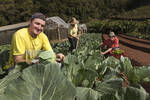
Objective: to contribute to the sustainable rural development of Latin America and the Caribbean, strengthening Family Farming through public policies built on the basis of dialogue and within the framework of south-south cooperation between the countries of Latin America and the Caribbean, thus responding to the Sustainable Development Goals proposed by the 2030 Agenda.
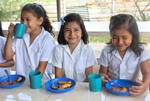
Objective: consolidate and strengthen school feeding programs in LAC, especially with a view to changing dietary habits through food and nutrition education actions and the incorporation of fresh and healthy food into schools.
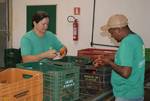
Objective: Improve the Food Systems of the Countries of Latin America and the Caribbean in their sustainability, sensitivity to adequate nutrition and their efficiency by enhancing the governance and capacities of actors related to access and consumption of healthy foods.

Objective: Contribute to increasing the food and nutrition security of rural communities in El Salvador, Nicaragua, Honduras and Paraguay, through school feeding programs which are strengthened and articulated by means of food products from local and regional family farming.






